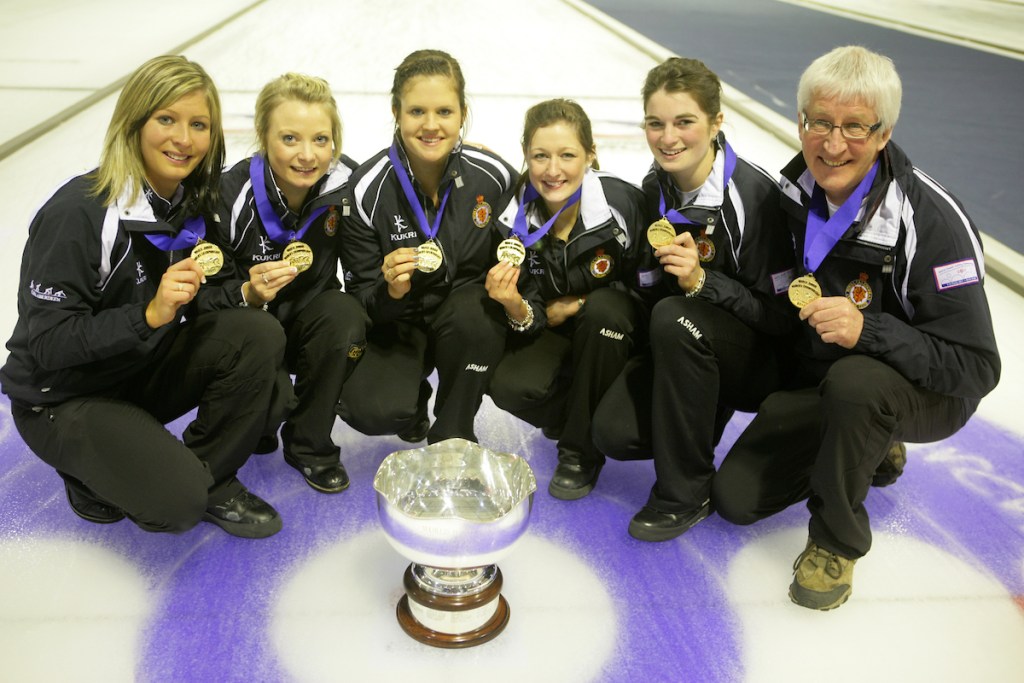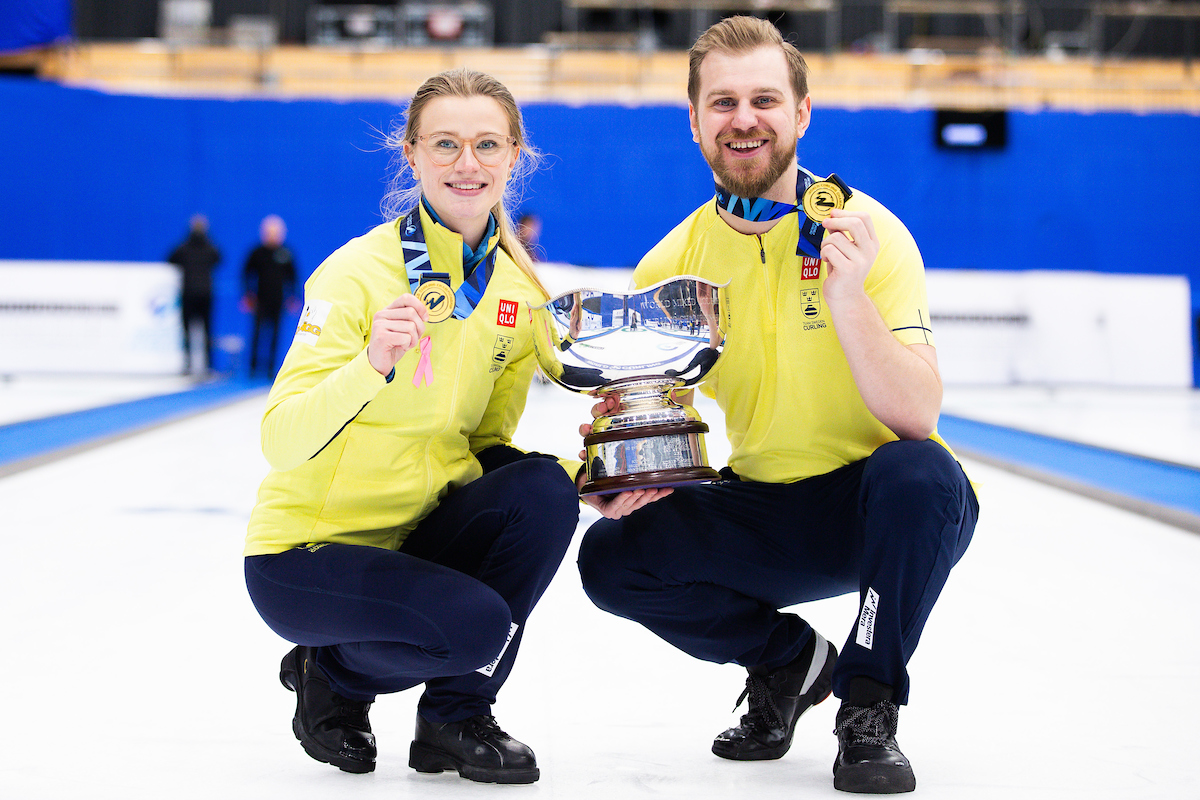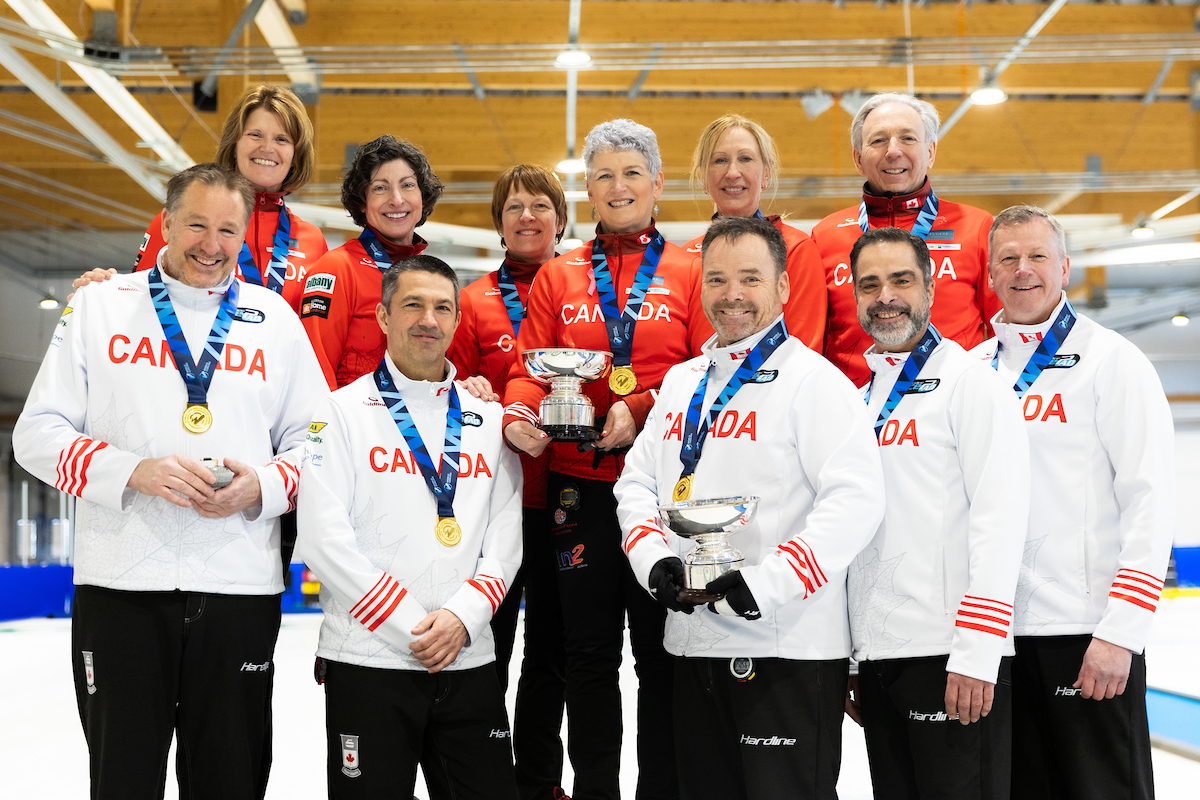9 January 2024
“You get beat, but it’s what makes you stronger” — Elite curlers reflect on junior days
This season’s World Junior-B Championships ended in mid-December. For many participants it was the peak of their season, but for some, it has been just one of many competitions that they attend.
Especially in less developed curling countries, juniors participate throughout multiple categories. For example, two Turkish women took part in the Le Gruyère AOP European Curling Championships 2023 earlier this season.
Czech and Hungarian men’s skips both attended the World Mixed Doubles Championship last season, and Latvia women’s skip has already participated in 22 World Curling events in total.
Full season
The Turkish junior women finished fourth at the World Junior-B Championships, therefore, have qualified for the World Junior Championships to be held in February. The women’s team also qualified for the BKT Tires World Women’s Curling Championship 2024 by finishing eighth at the Europeans in November.
Now, the two young players who are members of both the junior and the women’s team will have competed at four championships by the end of March.
They are professional curlers, and also university students. However, both agree that curling has priority.
“I do my training before classes and I plan everything according to the curling schedule,” says Calikusu.
Her teammate, Berfin Sengul, adds that one of the biggest challenges of their busy curling life is playing at a different position in each team: “I play lead in the women’s team and I play fourth in the junior team, which is very different but I am gaining a lot of experience which makes it easier and easier over time.”

A key to success?
Historically, many world-class curlers have medalled at junior championships.
Current Olympic women’s champion and three-time European champion, Scotland’s Eve Muirhead won her third consecutive gold medal at the world junior championships in Vancouver in 2009.
She then had just five days to recover and travel to Korea to play at the women’s world championship, skipping a completely different team.
“I remember it was a bit of a challenge at that time, I flew with my coach straight from Vancouver and thankfully, I received a lot of advice on nutrition and how to manage jetlag. And of course, if you have this opportunity to play both events, you take it,” says Muirhead.
She was not a professional athlete back then and juggled different activities, such as golf, bagpipes and school. “I dropped school one year early because I had a chance to go to the Olympics, so a lot of changes and big decisions in my life at that time,” she explains.
Three-time Olympian and European champion Danish women’s skip Madeleine Dupont has gone through a very similar experience as Muirhead.
In 2007, Dupont had only a few days to travel from the world juniors in the United States—where she took a bronze medal—to the world women’s championship in Japan.
“Going from skip to sweeping was a big challenge, but I had such great teammates that it did not feel like a problem at that time. I think the biggest challenge was the pressure that I wanted to win it all and really perform well over a long period of time,” she remembers her busy March in 2007.

She did manage that well and brought home a silver medal from Japan.
Like Muirhead, Dupont was not a professional athlete at that time and has not been since: “It has been really difficult for as long as I can remember. In school, it was devastating to miss school trips and other social activities. And for my jobs over the years, it has been hard to convince my bosses to have eight to twelve weeks of ‘holiday’.”
However challenging, tiring and time-consuming this may be, all the players agree that it is worth it.
“I would not have missed any of my junior years. There were so many amazing experiences and memories in my junior years, and it is the thing that I can still look back on with great joy today,” adds Dupont.
“It definitely helped me that I played ladies when I was still a junior, because then when I made the transition when I aged out of juniors, it was not such a big of a jump. Of course, when I played ladies as a junior, I got beat a lot, but I think that it makes you a stronger player,” says Muirhead.

Coach’s view
Two-time world men’s champion and Olympic silver medallist, Scotland’s David Murdoch agrees, “I believe that there are far more positives than negatives by these experiences at championships. It is important to always keep things in perspective and understand any expectations. It is also very important to fully plan the schedule ahead, should there be a multitude of championships approaching.”
Murdoch, who is currently High Performance Director for Curling Canada, also sees the importance of activities outside of the sport, “Continuing in education or work is certainly a key overall component in an athlete’s development plan.
“Having balance with life outside of sport can offer many advantages and can often alleviate any pressures sport offers, so be sure to spend time with family and connect with friends,” he advises young players.
Written by Feature Writer, Anna Kubeskova
You can follow the World Curling Federation on X, Instagram, Facebook, TikTok and Weibo and by searching the hashtag and #curling




